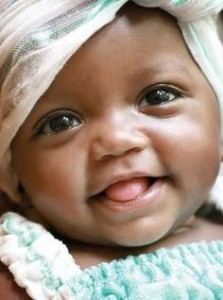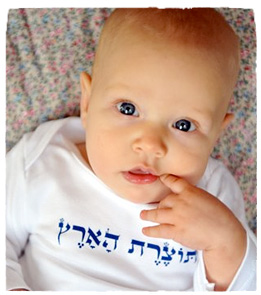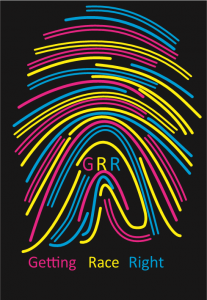
Take a minute to think about some of the social groups to which you belong—groups based on biology (gender and age, for example), family history (religion, perhaps, and ethnicity), or personal choice (occupation, place of residence, or political party). Groups meet basic, personal needs for each of us, which is why we take them so seriously, and why we get so emotional about them.
Being affiliated with social groups even promotes physical health, what some researchers have called the “social cure.” Why? According to Katharine Greenaway and her colleagues (2015), social groups help us feel supported and esteemed, as we might expect, but they also help us feel capable. With the support and the esteem comes a stronger sense of personal control over our lives.
Different kinds of groups, it turns out, meet different kinds of needs. In one research study, college students from the U.S., England, and Portugal attributed different kinds of functions to different kinds of groups (Johnson et al., 2006). They indicated that groups such as “family, friends, romantic partners, and any other very close group of people” make us feel accepted, connected to others, sheltered by their comfort and support. Work groups help us achieve our goals, providing a sense of accomplishment and mastery. It’s the broader social groups, however, such as “ethnicity, nationality, religion, race, or age” that provide us with a sense of identity. The researchers even found that students who were merely exposed to phrases like “understand who you are” were more likely later on to think spontaneously of social groups like race and religion when doing a different (ostensibly unrelated) task. The connections are deep and unconscious. Broad social groups— ironically, comprised by definition mostly of people we don’t even know—are a primary source of our sense of personal uniqueness, distinctiveness, and individuality.
That is true, in part, because being like some people makes us different from others; both “we” and “they” are necessary for our self-definition. The self, perceived in individualistic Western cultures as private, unique, and separate, turns out to be inherently social, interdependent with others in myriad ways. We share a bond with fellow group members, most of whom we do not know, but with whom we are emotionally connected. They help us understand who we are because their experiences often are so similar to ours. Those who are outside our group also shape our identity, because their experiences and perspectives heighten our own by contrast. As Social Psychologist Marilyn Brewer (1979) noted three decades ago, the outgroup is as important to our sense of self as the ingroup, just in an opposite way: we are who we are because they are who we are not.
That is one of the reasons we respond so forcefully, so emotionally, to questions of race. Logically, we may not understand it. Psychologically, we sense it profoundly. What I believe about my social groups affects what I believe about myself. How I feel about my social groups affects how I feel about myself. There is significant overlap between the parts of the brain that process information about me and the parts that process information about us. (Cikara and Van Bavel, 2014). The self is profoundly, fundamentally social, and to a degree we often fail to notice in this culture that centers and celebrates the individual.
Minimal groups, maximal effect
So what leads us to identify with our social groups, to feel that deep sense of our social self? Henri Tajfel helped answer that question 30 years ago. A Polish Jew who was studying in France at the time of the Nazi invasion, Tajfel joined the French army, was captured, and spent time in German POW camps. He survived only because he was able to pass as a Christian. After the war, he returned to Poland to discover that his family and friends had perished in the Holocaust. People cope with tragedy in different ways. Tajfel devoted the rest of his life to studying racial hatred. As a professor of psychology at England’s Bristol University, he began a series of experiments designed to identify which of many different variables is most responsible for the development of prejudice and hate. First, however, he needed some baseline data, so he set out to create a situation in which two groups existed with no history, no competition, no clash of values, nothing that would lead their members to discriminate against each other. After that, he intended to introduce different variables, one at a time, to measure their effect.
Prof. Tajfel brought people into his laboratory and randomly assigned them to one of two groups. The participants never met anyone else in either group (Tajfel and Turner, 1979). All they knew was that two groups existed, and they belonged to one of them. For his baseline measures, Tajfel asked people about the two “minimal” groups, expecting to find no difference in attitudes or actions because no actual differences existed. But he failed. In spite of the fact that there was no basis even for distinguishing between the groups, Tajfel’s research participants exhibited ingroup favoritism and outgroup prejudice on a variety of measures. They claimed to like people in their own group more than they liked those in the other group, and they divvied up research payments in such a way that members of their group benefited even when they personally did not. Over the course of many trials, Tajfel found it impossible to create two groups—even artificial, barely-there groups—without engendering preferences for ingroups and prejudice against outgroups. He explained this in terms of the centrality of group memberships to our sense of ourselves, our “social identity.”
Biologically wired to be shaped by our circumstances: Nature loves nurture
It starts early. Preferring our own groups, at the expense of others, is natural and universal, rooted in our life experiences long before we possibly can be consciously aware of it. Researchers in Israel and Ethiopia (Bar-Haim et al., 2006) demonstrated that infants as young as three months have a preference for looking at same-race, as opposed to other-race, faces. Black Ethiopian babies spent more time looking at photographs of Black Ethiopian faces than at photographs of White Israeli faces. White Israeli babies did just the opposite. However, Black Ethiopian babies living with their families in Israeli immigration centers (and therefore exposed to both Black and White faces), spent virtually the same amount of time viewing both kinds of faces. Any same-race preference, then, was determined by the kinds of people the babies had seen in the first few weeks of life, not by some innate propensity for one over the other. Even as babies, we favor the familiar. (Liking one’s ingroup begins shortly after birth. Actively disliking the outgroup begins around age six. See Bettelmann and Böhm, 2014.)
Why are some groups more important to us than others?
Of course, we belong to many different groups. Why are some groups more important to us than others? Part of it has to do with which groups memberships most determine our life experiences. When Halle Berry won a Best Actress Oscar in 2002 for “Monster’s Ball,” she gave an acceptance speech that included these lines:
This moment is so much bigger than me. This moment is for Dorothy Dandridge, Lena Horne, Diahann Carroll. It’s for the women that stand beside me, Jada Pinkett, Angela Bassett, Vivica Fox. And it’s for every nameless, faceless woman of color that now has a chance because this door tonight has been opened. Thank you. I’m so honored. I’m so honored. And I thank the Academy for choosing me to be the vessel for which His blessing might flow.
Some ridiculed Ms. Berry for her speech, and the emotional fashion in which she delivered it. But it reflected very well her sense that she was not just another in a long line of women to win the award. It mattered deeply to her that she was the first African-American actress ever to be called the best. She did not face the same kind of discrimination known by Black actresses of previous generations, but she saw her struggles and successes as intimately connected to their struggles and successes, a vindication—a fulfillment—of their efforts against great odds. And she saw her victory as good news for the aspiring Back actresses who would follow.
As a rule, being part of a minority group has a larger impact on us than being part of a majority group; it is both more socially distinctive and more likely to affect our life experiences. Perhaps that is why many White commentators accused Ms. Berry of being “over the top” in her remarks. Because their own social identity doesn’t depend as much on race, they couldn’t understand the extent to which she saw herself as winning on behalf of other Black actresses past, present, and future. I heard a few White students on my campus satirize Ms. Berry’s speech in the days following the ceremony. But my Black female students were nothing short of ecstatic. Several of them stopped by to make sure I had heard the news. They were excited and happy and grateful because they believed that another barrier had been broken, in part, for them.

Similarly, when Michelle Yeoh became the first Asian to win the best actress award in 2023, she said, in part, “For all the little boys and girls who look like me watching tonight, this is a beacon of hope and possibilities.” Turns out there were plenty of Asian American adults who were inspired, too.
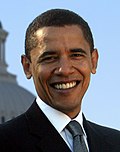
In a February 2007 interview with National Public Radio, then-Senator Barack Obama was asked whether his experience as an African American would make him a different kind of president than if he were White. His reply reflected a strong sense of social identity and how it is experienced:
“. . . There are certain instincts that I have that may be stronger because of my experiences as an African American. I don’t think they’re exclusive to African Americans but I think I maybe feel them more acutely. I think I would be very interested in having a civil rights division that is serious about enforcing civil rights laws. I think that when it comes to an issue like education for example, I feel great pain knowing that there are children in a lot of schools in America who are not getting anything close to the kind of education that will allow them to compete. And I think a lot of candidates, Republican and Democrat, feel concern about that. But when I know that a lot of those kids look just like my daughters, maybe it’s harder for me to separate myself from their reality. Every time I see those kids, they feel like a part of me.”
While in office, President Obama made headlines for saying, “If I had a son, he’d look like Trayvon [Martin]. When I think about this boy, I think about my own kids.”
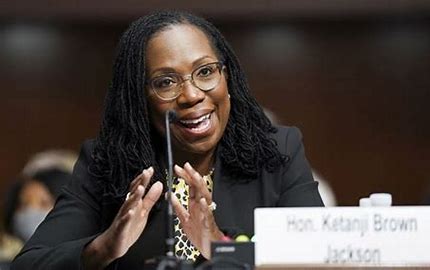
And when Justice Ketanji Brown Jackson reflected on her confirmation to the U.S. Supreme Court, she used plural pronouns, not singular ones: “It has taken 232 years and 115 prior appointments for a Black woman to be selected to serve on the Supreme Court of the United States. But we’ve made it. We’ve made it, all of us.”
All of us can feel empathy for others, but when the others are similar in an important way that really affects the course of our life, the connection is stronger, and the empathy runs deeper as a result.
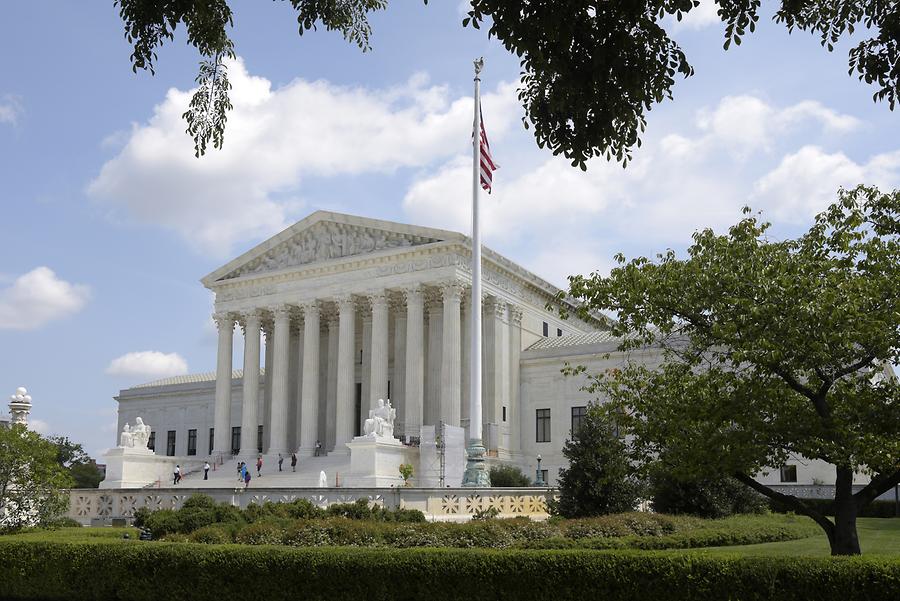
As social conditions change, the groups that matter change, too. In the early years of the American Republic, different states had very different agendas for the new national government, and they often were skeptical of federal officials from other states. Those concerns got reflected in nominations to the Supreme Court. By tradition, there was a New England seat, a New York seat, a Pennsylvania seat, and a Virginia seat. As state-specific differences dwindled, so did the need for state-specific court seats. As religious differences became more important, there came to be an informal Roman Catholic seat and, later, a Jewish seat. Today, what state you are from is much less important in daily life, so it is much less important for Supreme Court membership. Where you worship is less important, too (with the notable exception of Muslims), but race and ethnicity still matter. If and when race becomes less important in daily life, it will become less important in Supreme Court nominations, too, and in myriad other ways as well. But as long as race is a powerful determinant of our life opportunities, it will matter, and matter profoundly, in the Supreme Court and every other aspect of society.
The Bottom Line: Ingroup bias and outgroup prejudice are innate human responses, but the specific groups we prefer, and the ones that mean the most to us, result from experience and social context.



